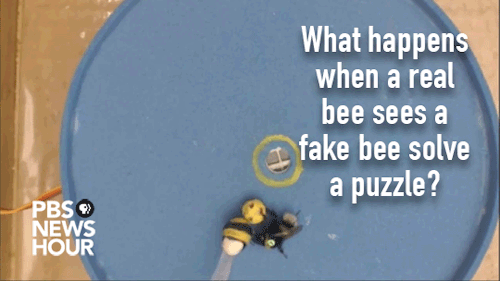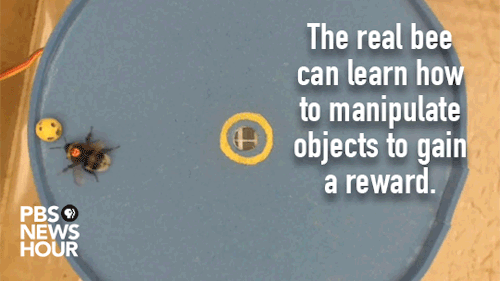Latest Posts by thecaffiend - Page 3
like there’s this whole thing in this book about how your brain grows stronger and healthier by practicing responding to stress in healthy ways,
because if a stressor is predictable and you feel a sense of control over it, you habituate and stop reacting to it,
but if it’s random and unpredictable you have the opposite response and become sensitized, so your reaction actually gets more and more extreme.
(if you hear a loud noise at predictable intervals you’ll soon stop noticing or reacting, but if you hear it at random intervals you’ll become sensitive to it and anxious.)
so one way to help people who have adverse reactions to reminders of trauma is to give them control over how they’re reminded of the trauma,
because it helps the brain practice responding to stress in a safe way so you can habituate to the stress response.
which is why if someone tags something for a trigger and you still choose to look,
it’s actually an act of healthy resistance against your reaction to that trigger (because it teaches your brain to habituate),
but encountering something triggering in a random and unpredictable way actually increases your stress response and makes you more sensitive to the trigger.
so people who are against trigger warnings because “you have to learn to cope” are actually taking away your tools for learning to cope,
because encountering stressors in a way that further strips you of control over your trauma is never, ever helpful.
it’s a lot of stuff i kind of knew but integrated and explained with more context and science
Made a small suite compiling some moments of Viktor’s theme that I picked up on while listening to the Arcane soundtrack (which is incredible by the way, go listen to it if you haven’t yet!) Though there are multiple repeated elements to the music in his scenes, I believe his central motif consists of the simple notes: G, F, E, D, which can be heard in each track.
You can hear it for the first time when Viktor introduces himself to Jayce in “It’s Viktor" as well as a lovely rendition of it in “The Toy Boat”, which explores the motif the most and even teases a bit of “First Steps”. The theme is later presented more tragically though in the Hexcore scenes, which continues the use of strings but also sometimes utilizes the unique addition of a man’s hum. During “Promise Me”, we also hear it with a woman’s hum.
Tracks (In Order):
“It’s Viktor”
“The Toy Boat”
“Promise Me”
“Everyone’s Gotta Play Their Part”
“Viktor and the Hexcore”
“Something I’ve Been Working On”
You can also hear his theme very faintly at the end of “I Understand Now”, which I didn’t include here.
On a side note, the music in the Hexcore scenes is so epic and tragic, I’m hoping they’re the foundation of the Machine Herald’s theme because I want to hear a lot more of it in the future.
I’m no music expert by the way, just an enthusiast. If anyone has a background in music, please feel free to add your expertise to this!
(This music obviously does not belong to me.)
Tips for working with children?
1. Don't lie to them if you can avoid it. Water down truths at your discretion, but if you try to lie outright, a good number of them are probably going to pick up on your weird energy and figure you're hiding something. This will very likely come off as "adult who doesn't think we're real people", which is how you promote rebellion.
2. Listen to the problems they come to you with. Imagine they were your problems. If Brůnden at work stole all your pens and ignored your requests to leave you be, you'd be pretty pissed if your manager told you to "just use your nice words" or "let him get bored". Decide what you would want an adult to do, and form a reasonable response.
3. Let some of your weird (child appropriate) interests show. Odds are, when they see your passion, they'll take interest. I accidentally wound up teaching an intro to animal biology to a group of first graders in my after school program this way, and it became what they knew me for. Great for bonding, teaching, and bartering for completed chores.
4. Learn about things they're interested in, but don't force it into things. It'll help you understand what you overhear, and pitch in at the right moment.
5. Treats and stickers. They work on adults, and they work on kids. Make them take a little bit of effort to earn, but also pick special occasions where everyone gets one free. Once you get a better idea of their personalities, lives, strengths, and weaknesses, you can tailor this for personal growth.
6. Acknowledge their feelings. Verbally affirm that they are upset, they are frustrated, they are angry or sad, and encourage them to explain why, and work to find acceptable solutions. Staying perfectly calm and happy while they're angry might help to a point, but ignoring their obvious feelings will make them feel that you don't care or understand, which will make things worse. A lot of kids have a hard time figuring out how adults feel, and why, so empathy will need to be clearer.
7. Play with them on their own level. When you play a game they started on their own, follow their rules, and if you can't, explain why. Expect a few of them to try and mess with you. You're not as distant or alien if you can fall for the same things they do, or admit when you've been outsmarted or outclassed. Be aware that some rules may change at random, and don't go all out on winning.
8. Be honest in ways other adults won't be. When telling a personal story, mention offhand that you didn't like someone, or someone was mean for no reason, or another adult was rude or broke rules, they'll see that you think and feel in similar ways as them, and it can reinforce that yeah, sometimes life is unfair, no, growing up doesn't numb your personality, and no, you don't have to feel happy and positive and pleasant all the time. Sometimes things just suck, and you need to handle it maturely. It's acting on bad feelings that's bad, not the bad feelings themselves. And hey, sometimes adults ARE mean or rude or wrong! They're not crazy or dumb when they notice!
9. Literally just be yourself. Curb any cursing or inappropriate subject matter, but otherwise, they'll recognize that you're an individual with your own personality, and either they'll like you or they won't. Either way, they'll decide how to act from there. Kids are mostly just distilled adults with social restrictions, they can adapt to a lot.
“Here’s what I know: if someone’s much better than you at something, they probably try much harder. You probably underestimate how much harder they try. I’m not saying that talent isn’t a meaningful differentiator, because it certainly is, but I think people generally underestimate how effort needs to be poured into talent in order to develop it. So much of getting good at anything is just pure labor: figuring out how to try and then offering up the hours. If you’re doing it wrong you can do it a thousand times and not produce any particularly interesting results. So you have to make sure you’re trying the right way. […] I’m curious about the ugliness of trying, the years and years of wanting and hoping and working. I don’t know why I’m so fascinated by craft. I think it’s because it requires such a sustained tenacity. Like Michelangelo saying that he just chips away at everything that didn’t look like David: a hundred thousand little motions to reveal the underlying beauty. I think a lot of people want to be but they don’t want to do. They want to have written a book, but they don’t want to write the book. They want to be fit, but they don’t want the tedium of working out. They’re ashamed of rejection and they’re ashamed of imperfection. I might want lots of people to subscribe to this Substack, but do I want to workshop a post every day? Donna Tartt once said in an interview that if the writer’s not having fun the reader isn’t either. I think people make the best things when they love the process, when they willingly shoulder the inherent uncertainty and pain that comes with it. It’s almost like a form of prayer: you offer up what you can even though the reward is uncertain. You do it out of love.”
— Ava, effort (via luxe-pauvre)
I never used to understand what “making connections” looked like but it turns out it’s standing at a party and saying “I’ve been thinking about getting into the film industry” and someone saying “Oh, Sarah works in the film industry” and Sarah yelling from accross the room “Did someone say my name?!?!?!”
small shifts in stimuli are surprisingly simple to do and can do wonders for your mental state
Quantum Mechanics Itself as Emergent 'Phenomenon'?

Recently, we've been talking about emergence - more explicitly about emergent phenomena in many body systems. But what if the concept of emergence would not only apply 'within' quantum mechanics but also 'outside' the theory? What if quantum mechanics itself is an emergent theory from a classical-type underlying 'reality'? This is exactly the approach of an interpretation of quantum mechanics, called emergent quantum mechanics (EmQM).
Where is EmQM located in the 'zoo' of interpretations?
The 'zoo' of interpretations and alternative theories of quantum mechanics can be classified by their answers to the violation of Bell's inequalities. Bell's Theorem is a theory-independent result and therefore must hold for any possible approach which reproduces the results of standard quantum mechanics. Roughly speaking, the theorem's consequences are that one either has to give up the traditional understanding of realism, or the idea of locality. E.g. Rovelli's approach and QBism belong to the camp which gives up traditional realism and adheres to locality, whereas Bohmian Mechanics sticks to realism and therefore embraces nonlocality. In general, hidden variable theories belong to this 'realist' camp.
EmQM suspects a locally deterministic theory from which standard quantum mechanics emerges. Walleczek and Groessing (p. 2, [1]) suppose that instead of "absolute quantum randomness" there might be "quantum interconnectedness" - indicating the presence of some kind of nonlocality, e.g. nonlocal causality. Hence, this approach seems to belong to the above called 'realist' camp, in which a traditional understanding of realism is embraced and the price to pay is nonlocality, more neatly called "quantum interconnectedness".
Why EmQM?
Walleczek and Groessing [1] argue that a metaphysical fundament is needed in order to unify general relativity and quantum mechanics. Since general relativity is strictly deterministic and standard quantum mechanics inherently indeterministic, the metaphysical fundament of each theory starkly opposes each other such that the lack of unification seems inevitable. However, setting a microscopically causal fundament for both branches of physics, as well as the focus onto emergent phenomena, might yield a solution. For instance, the theory of quantum gravity already relies on the idea of emergent spacetime - together with EmQM it may be possible to lay a metaphysical framework of 'all physics'. Nevertheless it might be questionable, in my view, how this is supposed to work with an approach as EmQM in which nonlocality is a cornerstone, i.e. possibly causing trouble with causality as we know it from relativity.
EmQM and Bohmian Mechanics
Since EmQm and Bohmian Mechanics (BM) belong to the same, 'realist' camp, both seem to be related. Both claim to describe the underlying 'reality' beneath standard quantum mechanics. Both approaches share the belief that standard textbook quantum mechanics does not have descriptive character regarding the nature of reality, even though the theory is empirically successful. Then, standard quantum mechanics is regarded as an 'effective' theory.
However, two approaches can be well compared by regarding how they attempt to reproduce standard quantum mechanics. One main aspect in this respect is the appearance of randomness. Both approaches claim to be fundamentally deterministic and therefore have to explain why we experience the randomness of standard quantum mechanics in our laboratories. Bohmians do this by introducing so called "absolute uncertainty" [3], which is a consequence of the quantum equilibrium hypothesis. Effectively, this means that a universe in which Bohmian Mechanics governs the dynamics, it is impossible to gain knowledge about the configuration of a system beyond the probability distribution determined by the wave function ρ=|ψ|^2. Hence, the complete configuration of point particles, their positions and velocities do exist, but there is no experimental access to it. This limited knowledge is supposed to be the source of randomness and uncertainty that we encounter in standard quantum mechanics:
"This absolute uncertainty is in precise agreement with Heisenberg's uncertainty principle. But while Heisenberg used uncertainty to argue for the meaninglessness of particle trajectories, we find that, with Bohmian mechanics, absolute uncertainty arises as a necessity, emerging as a remarkably clean and simple consequence of the existence of trajectories." (p.864 [3])
Instead of making use of a (more or less ad-hoc) hypothesis, the appearance of randomness in EmQM seems a bit more natural: Only because the underlying dynamics is supposed to be deterministic, this does not imply pre-determination. This is something one can already observe in purely classical systems: The more complex a system is, the more uncertain is the outcome (often referred as "deterministic chaos"). A minor change in the boundary conditions can cause a huge change in the result. Thus, the central point is emergence:
"Critical in this context is that emergent phenomena are subject to unpredictability as a consequence of the intrinsically self-referential nature of the governing dynamics [...]." (p.5 [1])

In comparison, BM formulates its theory in a rather rigid manner. It formulates postulates from which the theory can be deduced. The issue with this is that these postulates have kind of an ad-hoc character. In my view, EmQM circumvents these problems by being less strict/definite. This approach does not seem to have a fixed formalism yet (at least I haven't found analyses on the same level of rigor as there are for BM), while the research seems to be more focused on exploring how emergence can enter the picture - as e.g. 't Hooft does in [2], where he describes explicit examples of possibly emergent symmetries. (Disclaimer: maybe my impression is incorrect, since I have only superficial knowledge about EmQM.)
Regardless of this point, both approaches seem to be interconnected in the end. Walleczek and Groessing (p.2 [1]) claim that a future EmQM would include BM. Hence, in my view, it might be possible that EmQM might support BM in the sense that it lifts the necessity of possibly ad-hoc appearing postulates as formulated in BM. Thus, any theory of quantum mechanics (orthodox or unorthodox) might not only yield emergent phenomena within the theory but quantum mechanics might unravel itsel as an emergent 'phenomenon'.
---
References:
[1] Walleczek, Groessing, Is the World Local or Nonlocal? Towards an Emergent Quantum Mechanics in the 21st Century, arXiv:1603.02862, 2016
[2] 't Hooft, Emergent Quantum Mechanics and Emergent Symmetries, arXiv:0707.4568, 2007
[3] Dürr, Goldstein, Zanghí, Quantum equilibrium and the origin of absolute uncertainty. J Stat Phys 67, 843–907 (1992). https://doi.org/10.1007/BF01049004
Hey did you know I keep a google drive folder with linguistics and language books that I try to update regularly
Thought experiment: the crew of a hypothetical Star Trek style TV show that’s been deliberately contrived to cause as many arguments as possible between canon-conscious fanfic authors.
A chief engineer whose facial appearance is apparently shockingly unusual, but whose face is never actually seen. The engineering deck is often obscured by steam, and their responsibilities frequently require them to wear a full-face protective shield, while any time they’re encountered outside of engineering they’re shot exclusively from the back, or with some foreground object conveniently blocking their face. There’s a running gag where any time someone tries to describe them they just can’t seem to come up with the right word.
A tactical officer who may or may not actually have a name. Unlike the chief engineer, above, no conspicuous concealment ever occurs; the show’s plot and dialogue are simply structured so that their name just happens never to come up, in such a way that a given audience member might not notice until someone points it out to them. The character is, of course, one half of the show’s primary canon ship. The show’s supplementary material is likewise phrased in such a way that the character’s name is never stated, with the character’s actor being credited as “also featuring”.
A chief medical officer who manages to deploy a strangely topical anecdote from their implausibly extensive prior career in nearly every episode. These anecdotes are careful never to directly contradict each other, but in aggregate form a personal history which cannot conceivably be true. The possibility that they’re just spinning tall tales is ruled out by the fact that their anecdotes are frequently corroborated by comments from other crew members who’ve either heard about the incident in question or were present themselves for some (generally unspecified) reason.
A communications officer and a science officer who are played by the same actor. They’re never seen on screen together, even while off duty. (e.g., at any gathering where one of them appears, the other “couldn’t make it”.) The circumstances that prevent them from ever being in the same room are often set up to lead the audience to suspect that they’re looking at one character pretending to be two separate people for some unspecified reason, but only characters who aren’t members of the crew ever notice the fact that they’re identical apart from the colour of their uniforms; the other crew members simply don’t see the resemblance.
The captain, who appears in every single episode and often plays a central role in the plot, yet has no regular actor, being portrayed by an endless parade of guest stars. Their age, gender, and overall appearance is usually wildly different from episode to episode, though they always wear the same distinctive headgear in order to allow the audience to easily recognise them. This is apparently a diegetic phenomenon, as other characters will occasionally comment in passing on the captain’s current appearance, but the phenomenon is otherwise so unremarkable to them that its significance is never discussed.

Source If you want more facts, follow Ultrafacts
TIL
Anne Bancroft was happily married to Mel Brooks from 1964 until her passing in 2005.
and there is something wonderful about the sexiest woman in the history of American film being in love with the funniest man in the history of American film.
it's just so charming.
i have never met an unpsychotic person who knows what it actually means to “not encourage the delusion” …not a single one








The artist gives light and paints the art so that we understand another hidden reality. Artist Nikita Busyak.


What does it take to teach a bee to use tools? A little time, a good teacher and an enticing incentive. Read more here: http://to.pbs.org/2mpRUAz
Credit: O.J. Loukola et al., Science (2017)
I know you’re tired bitch but keep fucking going
dude seeing these Mega high quality images of the surface of mars that we now have has me fucked up. Like. Mars is a place. mars is a real actual place where one could hypothetically stand. It is a physical place in the universe. ITS JUST OUT THERE LOOKING LIKE UH IDK A REGULAR OLD DESERT WITH LOTS OF ROCKS BUT ITS A WHOLE OTHER PLANET?
Especially when you print a six THOUSAND page report on accident and your coworker thankfully catches it a few hundred pages into printing.
"printer" is a special box with a demon inside it










Cities and Sketches on Instagram
Now is the easiest time of year to start a new garden bed. All you have to do is lay down cardboard:

Top it with still some nitrogen rich compostable matter, in this case grass clippings:

Some carbon-rich matter, in this case old wood chips:

And keep layering until it's pretty thick:

And then walk away and ignore it until spring. All winter long, it'll be decomposing, while killing the grass and weeds underneath. By spring time, the soil underneath will be nice & loose and fertile, and you'll be able to plant straight into it.
(If you want to meet organic standards, then make sure any cardboard or paper is non-glossy and black & white. This was for someone else's flower bed, so the red ink isn't going to be an issue)
“For all the attention the Berlin conservatory study has received, this part of the top students’ experiences—their sleep patterns, their attention to leisure, their cultivation of deliberate rest as a necessary complement of demanding, deliberate practice—goes unmentioned. In Outliers, Malcolm Gladwell focuses on the number of hours exceptional performers practice and says nothing about the fact that those students also slept an hour more, on average, than their less-accomplished peers, or that they took naps and long breaks. This is not to say that Gladwell misread Ericsson’s study; he just glossed over that part. And he has lots of company. Everybody speed-reads through the discussion of sleep and leisure and argues about the 10,000 hours. This illustrates a blind spot that scientists, scholars, and almost all of us share: a tendency to focus on focused work, to assume that the road to greater creativity is paved by life hacks, propped up by eccentric habits, or smoothed by Adderall or LSD. Those who research world-class performance focus only on what students do in the gym or track or practice room. Everybody focuses on the most obvious, measurable forms of work and tries to make those more effective and more productive. They don’t ask whether there are other ways to improve performance, and improve your life. This is how we’ve come to believe that world-class performance comes after 10,000 hours of practice. But that’s wrong. It comes after 10,000 hours of deliberate practice, 12,500 hours of deliberate rest, and 30,000 hours of sleep.”
— Alex Soojung-Kim Pang, Darwin Was a Slacker and You Should Be Too
I'm not actually smart, I just prep for a class like I'm going into battle
reblog if ur mom is smart and beautiful
Wtf!!!!!!!
if you refuse to get the vaccine the government should sneak into your room after you go to sleep and take out the little chip in your neck that makes the supermarket doors open when you go near them










Celestial Ceilings